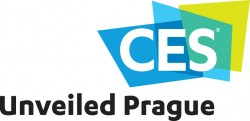Case studies
Škoda Auto
Mobility for people and clean vehicles for the environment are the main endeavours of the carmaker ŠKODA AUTO, whose objectives in the area of long-term sustainable development are embedded in its GreenFuture strategy built on three basic pillars: GreenProduct, GreenFactory and GreenRetail. In realising the GreenProduct pillar, ŠKODA set the goal of offering vehicles that are extraordinarily environmentally friendly, particularly its GreenLine and Green tec cars. For example, the new generation of the Škoda Octavia model in the GreenLine version is the most ecological Octavia of all time with fuel consumption of only 3.3 litres of diesel per 100 kilometres and CO2 emissions in the amount of 87 grams per kilometre. ŠKODA wants to further reduce the average amount of CO2 emissions in all of its models. Besides the continual reduction of fuel consumption of cars powered by standard combustion engines, ŠKODA is also developing vehicles that run on alternative fuels.
Škoda Auto its Octavia Green E Line concept – its very first study of a car with all-electric drive. With its Octavia Green E Line concept, Škoda shows its innovative capacity and technological competence in this high-potential field. Expanding its environmentally-friendly model range, ŠKODA is renewing its emphasis on CNG vehicles. The most recent example of this is the new ŠKODA Octavia G-TEC.
Iveco Bus
Iveco Czech Republic a.s. acquired the Czech company Karosa in 1993 and continues to manufacture buses in the town of Vysoké Mýto. Besides other commercial vehicles and buses in particular, Irisbus Iveco manufactures a CNG-powered minibus model called the DAILY and a full-size CNG bus called the CITELIS. The CITELIS model range is equipped with the new Cursor 8 CNG engine, which delivers greater efficiency and lower emissions than required by both the EEV and even the future EURO6 standards. Compared to the EURO6 standard, the Cursor 8 engine’s emissions are up to 60% lower than the set limits. Iveco’s line of CNG buses ranges from 10.5-meter to 12- and 18-meter vehicles with capacity ranging from 86 to 148 passengers. The company’s total annual output of CNG buses is between 1,200 and 1,500 units and its main markets are Belgium, the Czech Republic and Greece. Markets such as Italy, Spain and France are also dominated by these safe and reliable CNG buses.
SOR Libchavy
The Czech company SOR Libchavy s.r.o. is the second-largest bus manufacturer in the Czech Republic. In 2010, it achieved the largest share of the domestic market and is aiming to become a European leader in bus production. SOR Libchavy offers a wide range of middle-category municipal, intercity and touring buses, urban trolleybuses, electric buses and hybrid buses with capacity from 25 to 51 seats and total capacity of up to 177 passengers. The producer places emphasis on high quality and a high level of customisation. This is also true of SOR’s four CNG bus models of the company’s own design. Customers can choose among various versions, each adjusted to meet particular requirements (short-distance, city, low-floor and full low-floor). All of the company’s CNG models are 12 meters in length, have two or four doors depending on the model and are powered by either Iveco Cursor 8 CNG or Cummins CGe 280 engines, which are in compliance with EURO5 emissions limits. The quality of SOR Libchavy buses was confirmed in 2001, when the company was awarded ISO 9001 quality certification. SOR EBN 10.5 is a low-floor city electric bus. I tis equipped by a brand new six-terminal electric motor, TAM 1049 Pragoimex, of the nominal output of 120 kW, which was developed to drive this electric bus.SOR NBH 18, a low-floor city trolley bus, is a three-axled five-door trolley bus. The bus is equipped with a parallel hybrid drive unit from the company of Allison allowing the accumulation of braking energy which is then utilised while starting off. This principle causes the reduction of fuel consumption during the operation. The motor used in the vehicle is of the Cummins make with the output of 175 kW with the EURO V EEV emission standard.
EVC Group
The company EVC Group Ltd. was founded in 2007. The original focus of the company on the sale of two-wheeled electric vehicles has begun to expand under the influence of increasing demand. They have built a team of professionals and a workshop base and they have acquired the necessary know-how in the field of accumulators and in the system of their operation, maintenance, charging and in the control of these processes. That´s why the focus on the development, production and sale of components, functional units and complete vehicles in the field of electromobility has gradually begun to predominate. It’s the only company in the Czech Republic that is dedicated to rebuilding cars into electric vehicles, including vans and buses. Its experience is also utilized in the development and production of components and complete drive systems for different categories of vehicles.
TriHyBus: Triple Hybrid Hydrogen Bus
TriHyBus is a modern and highly efficient bus with hydrogen fuel cells as the main energy source. Thanks to its triple hybrid conception, it can achieve optimal operating parameters with a relatively small installed power of the fuel cell (42 kW). The hydrogen fuel cell is an energy converter that uses hydrogen’s chemical energy to produce electricity, with a high overall efficiency of 50%. Hydrogen fuel cell-propelled vehicles are therefore entirely environment-friendly.
At first glance, the TriHyBus resembles any other bus and the passengers may not notice anything unusual – that is until it pulls away. Then the absence of vibrations and noise typical for diesel engines becomes apparent. The bus was manufactured in Plzeň by Škoda Electric using Iveco Irisbus Citelis chassis. A 42-kW Proton Motor membrane fuel cell is used as the main power-source for its electric traction motor. Additional traction accumulators and ultracapacitors are engaged while the bus accelerates or ascends, working alongside the fuel cell, allowing for energy recuperation while decelerating. The bus uses a hybrid design that increases efficiency of its propulsion system.
E/MOBILITA
The ČEZ group is focusing on the future of green mobility in the Czech Republic within its electro mobility project, which places emphasis on efficiency and ecology, introducing new processes and technologies for use with existing resources with emphasis on improving energy production, reducing losses and increasing reliability. Unique in the Czech Republic, the E/MOBILITA pilot project encompasses several activities, including development of electric vehicles, introduction of smart grids, local production energy in co-generation units, use of renewable energy sources and investment in science and research.
ČEZ is effectively realising its vision and strategy. Smart Region, which innovates production, distribution and measuring of energies, was first introduced in the Czech Republic in Vrchlabí. At the same time, the number of electric-vehicle charging stations is growing throughout the country with the objective of developing this means of transportation. Thanks to the pioneering work of ČEZ, electro mobility has become a full-fledged form of transportation for a number of project partners.
Thanks to experience gained from E/MOBILITA, the approaches applied by ČEZ comprise a benefit not only for the entire sector, but also for the development of the knowledge economy with emphasis on innovation. The project represents an opportunity for Czech industry and offers active involvement of consumers, effective use of energy and a responsible approach to the environment.
Within the E/MOBILITA project, the ČEZ group operates dozens of electric vehicles and 36 public charging stations, which will increase up to 150 by 2015.
Contact:
Should you be interested in more information please do not hesitate to contact us at automotive@czechinvest.org








